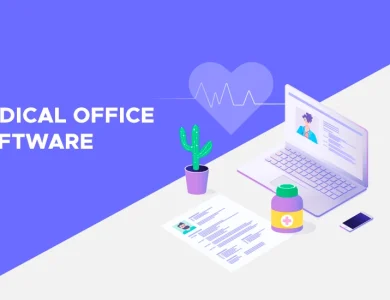In today’s digital age, where content is shared rapidly across multiple platforms, the need for efficiency and convenience has never been greater. One tool that has emerged as indispensable for many is the short URL generator. These generators transform long, unwieldy web addresses into concise, manageable links that are easier to share and track. But how exactly do they work, and why are they so valuable? In this comprehensive guide, we’ll delve into the mechanics behind short url generators, their benefits, and their applications.
What is a Short URL?
Before diving into how short URL generators work, it’s essential to understand what a short URL is. A short URL is a condensed version of a long web address.
The History of Short URLs
Short URLs have been around since the early days of the internet. Their creation was driven by the need for brevity in communication, particularly on platforms with character limits, such as Twitter. The first known URL shortening service was TinyURL, launched in 2002. Since then, many other services have emerged, including Bitly, Goo.gl, and Ow.ly.
How Short URL Generators Work
The process of generating a short URL involves several steps:
1. Input the Long URL
The first step in creating a short URL is inputting the original, long URL into the short URL generator. This can typically be done via a web interface or an API.
2. Generating a Unique Key
Once the long URL is inputted, the generator creates a unique key or identifier. This key is usually a random string of characters that serves as the shortened URL’s unique part.
3. Storing the URL Mapping
The generator then stores the mapping of the short URL to the long URL in a database. This mapping is crucial because it ensures that when someone clicks on the short URL, they are redirected to the correct long URL.
4. Creating the Short URL
Finally, the generator combines the base URL of the shortening service with the unique key to create the short URL. This URL is then provided to the user for sharing.
Benefits of Using Short URLs
Short URLs offer several advantages, making them a popular tool for marketers, social media managers, and everyday internet users.
1. Ease of Sharing
Long URLs can be cumbersome to share, especially on platforms with character limits. Short URLs are concise and easier to copy, paste, and share across various platforms.
2. Improved User Experience
Short URLs are more visually appealing and less likely to be broken when shared in emails or messages. They also reduce the likelihood of typos, ensuring that users can access the intended content easily.
3. Trackable Links
Many short URL services provide analytics, allowing users to track the performance of their links. This includes data on the number of clicks, geographic locations of the users, and the platforms used. Such insights are invaluable for marketers looking to measure the success of their campaigns.
4. Customizable Links
Some short URL services allow users to customize their links, making them more memorable and brand-specific.
5. Security
Short URL generators can also enhance security by protecting users from malicious links. Some services offer features like link previews and spam filtering to ensure that users are not redirected to harmful sites.
Applications of Short URLs
Short URLs are used in a variety of contexts, each leveraging their benefits to improve communication and engagement.
1. Social Media
Platforms like Twitter, with character limits, make short URLs indispensable. They allow users to share links without taking up too much space, leaving more room for the actual message.
2. Marketing Campaigns
Marketers use short URLs to track the performance of their campaigns. By analyzing click data, they can gauge the effectiveness of their efforts and make data-driven decisions.
3. Email Campaigns
Long URLs can be problematic in emails, often getting broken when the email is displayed on different devices. Short URLs prevent this issue and ensure that recipients can easily access the content.
4. SMS Campaigns
In SMS marketing, where character limits are strict, short URLs are essential. They make it possible to include links without exceeding the character limit, enhancing the effectiveness of the message.
5. Print Media
Short URLs are also used in print media, such as flyers, brochures, and business cards. They provide a convenient way for readers to access additional information online.
Common Short URL Services
Several short URL services are available, each with its unique features and benefits.
1. Bitly
Bitly is one of the most popular short URL services, known for its robust analytics and customization options. Users can create branded short URLs and track their performance with detailed reports.
2. TinyURL
TinyURL is one of the oldest short URL services, known for its simplicity and ease of use. It doesn’t offer as many features as Bitly, but it’s reliable and straightforward.
3. Rebrandly
Rebrandly focuses on branded links, allowing users to create short URLs with custom domain names. This is particularly useful for businesses looking to maintain brand consistency.
4. Ow.ly
Ow.ly is integrated with the Hootsuite social media management platform, making it a convenient option for users of that service. It offers link tracking and analytics features.
5. T2M
T2M offers unlimited URL shortening and redirection, along with comprehensive analytics. It’s a good option for users who need extensive tracking capabilities.
Technical Aspects of Short URL Generators
To understand how short URL generators work, it’s helpful to delve into some of the technical details.
1. Database Management
The core of any short URL generator is its database, which stores the mappings between short URLs and long URLs. Efficient database management is crucial to ensure quick and reliable redirection. Many services use high-performance databases like Redis or MongoDB to achieve this.
2. Redirection Mechanism
When a user clicks on a short URL, the service needs to quickly look up the corresponding long URL and redirect the user. This is typically done using HTTP 301 or 302 redirects. A 301 redirect indicates a permanent redirection, while a 302 redirect indicates a temporary one.
3. Unique Key Generation
Generating a unique key is a critical step in creating a short URL. Most services use random or sequential algorithms to generate these keys. Some advanced systems use hash functions to create more secure and collision-resistant keys.
4. Analytics and Tracking
Analytics is a significant feature of many short URL services. This involves tracking various metrics, such as the number of clicks, geographic location, referrer data, and device types. This data is collected using tracking pixels and cookies.
Security Concerns and Measures
While short URLs offer many benefits, they also come with potential security risks. Malicious users can exploit short URLs to mask harmful links. However, several measures can mitigate these risks.
1. Link Preview
Some short URL services offer link preview features, allowing users to see the destination URL before clicking. This helps users avoid potentially harmful links.
2. Spam and Malware Detection
Many services employ advanced algorithms to detect and block spam and malware links. This involves scanning the destination URLs for known threats and suspicious patterns.
3. Custom Short URLs
By allowing users to create custom short URLs, services can help ensure that the links are recognizable and trustworthy. This reduces the likelihood of users falling for phishing attacks.
4. HTTPS Redirection
Using HTTPS for redirection ensures that the data between the user’s browser and the server is encrypted, protecting against man-in-the-middle attacks.
Future Trends in URL Shortening
The landscape of URL shortening is continually evolving, with new trends and technologies shaping its future.
1. Integration with AI and Machine Learning
Artificial intelligence and machine learning are being integrated into URL shortening services to enhance security, improve analytics, and provide more personalized user experiences.
2. Blockchain Technology
Blockchain technology offers potential benefits for URL shortening by providing decentralized and immutable storage for URL mappings. This could enhance security and reliability.
3. Enhanced Customization
As personalization becomes more critical in digital marketing, URL shortening services are likely to offer even more customization options, allowing businesses to create highly branded and tailored links.
Conclusion
Short URL generators are a powerful tool in the digital landscape, offering convenience, improved user experience, and valuable analytics. By understanding how they work and the benefits they provide, users can leverage these tools to enhance their online presence and marketing efforts. As technology continues to advance, we can expect even more innovative features and applications for short URLs, making them an enduring staple in the world of digital communication.









